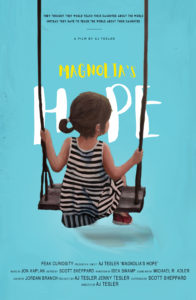24 weeks ago – after months of asking the questions of ourselves, of our doctors, of our friends- our pediatrician suggested we get our two and a half year old evaluated for autism. 18 weeks ago we found out that’s an unlikely diagnosis, but those 6 weeks were hard for all of us.
We knew something was a little off about her. How she refused to stack blocks, or answer our questions or draw or play with puzzles or really anything that two and a half year olds are supposed to do.
I attributed it to her being stubborn (like her father). Whatever it was, my wife had a very simple slogan for this journey: “We will win this”.
Following doctor’s orders we went to see a developmental pediatrician. We’d been seeing therapists through the Regional Center and they had all recommended this pediatrician (I’m keeping names private for now, but if you’re going through something similar and are looking for referrals in the Los Angeles area, feel free to get in touch with me).
The Regional Center is a great thing – it provides early intervention therapy and it’s all state funded. Of course, sometimes state funded just means you get mediocre therapists, but we were diligent. The ones we didn’t like, and there were a few, weren’t asked to return and we had them replaced with ones we found highly recommended.
We met with the developmental pediatrician three times over the course of a two month period. After hours of discussing and evaluating our LO, we had what they thought was a diagnosis at the time:
Apraxia. Sensory Processing Disorder. Hypotonia.
Apraxia is a motor planning disorder that affects speech significantly, though in our case, it seems to be more likely to be Dyspraxia which affects the entire body. In laymen’s terms, while our daughter may know a bunch of words and know how to climb the stairs herself, she has a tough time remembering that she does.
Hypotonia is a low muscle tone problem. It’s hard for her to build muscle so she’s weaker than she should be. This also makes it harder to climb stairs.
Sensory Processing Disorder is just like it sounds. She can’t process the information her senses give her. So that stair she’s about to climb may look like it’s 100 feet tall one time and 6 inches tall another time.
If only it were that easy. Rett is worse than all of these things. We’ve often said recently “I wish it was one of these things.” Rett is much much worse.
This has all been very confusing to us, and I imagine even more confusing to our friends and family. You don’t know how to help, no matter how hard you try. And we appreciate you wanting to. But, you also don’t know what’s wrong, because it’s hard to explain, it’s difficult to understand, and we never talk about it in front of her.
It’s also been hard to find information or other parents going through the same types of things., and I know how helpful that would really be. So, hopefully, we can keep you all updated through this blog and this can also be the beginnings of a support network for other parents going through similar things. {{UPDATE}} There is a fantastic family support network for Rett Syndrome through the International Rett Syndrome Foundation. Everyone I have talked to from that organization has been caring, empathetic and open to any questions or concerns we’ve had.
Only time will tell what progress will look like. But I know, in my heart of hearts, that we will win this.
